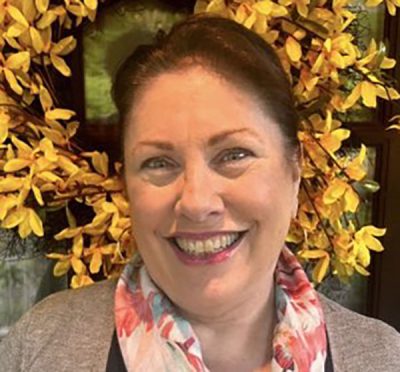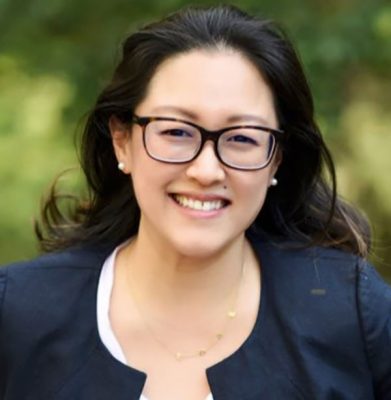Budget, SROs at Forefront of Three-Candidate Race for Chappaqua Seat
This is the year in the three-year rotation where there is only one seat being contested for the Chappaqua Board of Education.
The election drew three candidates – current board member Cailee Hwang, who is completing her first term, and challengers Kimberly Carey and Tim McNamara. Carey and McNamara are both running for the first time.
A fair amount of the discussion during this cycle has centered around the district’s decision to present a $141.8 million budget that exceeds the tax cap by about $1.4 million, which will require approval by 60 percent of the voting public. The board’s decision to include funding for three additional school resource officers has also been a prominent topic of discussion. If approved, that would place a full-time officer in each of the six schools starting in September.
Voting will be at the Horace Greeley High School gymnasium from 7 a.m. to 9 p.m. this Tuesday, May 21.
Kimberly Carey

Carey, an attorney, jumped into the race this year to ensure the special education department continues to make gains and her opposition to increasing the number of SROs in the schools.
“It was pretty much a spontaneous decision,” Carey said. “The school district is important to me. I had two kids go through the school district; I have one who’s still there. Special education is very important to me, and there seems in the last several years a great improvement in the special ed department. I’d like to be able to help improve it further because I think there are some things that can take place that can improve it.”
One area that could still be improved is helping students who are dyslexic, which has become an increasingly common condition, said Carey, whose daughter utilizes district services. She would like to see the district attract more educators who are certified in providing multiple methodologies to help students learn to read.
Carey said she does not have an objection to an SRO at the high school but opposes armed police officers at the elementary and middle schools because it would normalize weapons for the youngest children.
Carey cited studies that have shown SROs fail to prevent shootings, and with the expense of adding the three officers at more than $500,000 and over $1.1 million for all six, she called it “an over-response.” She supported the hiring of other professionals who can work with students who are experiencing mental health or behavioral issues.
“I think the schools would be better served to have other therapeutic professionals in the schools, like social workers and therapists,” Carey said. “I think they can actually help with the kids whose issues tend to be social-emotional and to a certain extent behavioral.”
Other strategies can be explored, such as having school entry points that have large amounts of glass to be changed to bulletproof glass and making sure there is better communication between classrooms, Carey said.
In her more than 30 years living in Chappaqua, Carey could not recall a school budget bring voted down, a streak that is on the line with the 60 percent approval requirement. Carey said district officials over the years should have been forward thinking for when a difficult budget year presents itself, rather than reacting when there are challenges.
“Ideally, I would like a tax cap-compliant budget,” she said. “I don’t see the reason why we can’t. I don’t think it’s been explained clearly enough.”
The district’s tax levy cap is 1.81 percent, in part due to a zero growth factor, which puts it in a bind with inflation at well over 3 percent.
Carey said the district needs to fully examine each budget line every year to justify its spending.
“We have a lot of people in this town who don’t have children in the school district,” noted Carey, who estimated that close to half of district taxpayers are in that category. “We want to keep these people in the town. I think it’s really important for the kids to have an age-diverse community.”
A former member of New Castle’s Committee of Race, Equity and Inclusion, Carey recognizes that society today is fraught with tension whether it’s over the war in the Middle East or national political debates. She has noticed friends and neighbors turning on each other if they disagree, putting children in the middle of the battles.
The schools have also had their share of incidents over the past several years, which has made the issue difficult to talk about.
“There really is no discussion, and that’s not good for the kids who are living here to grow up in the as they embark on their lives,” Carey said. “We have to teach them about how to speak with people about topics they’re not going to want to really address because that’s part of living in the real world as an adult.”
Cailee Hwang

Bidding for a second term, Hwang pointed out that because the current board has relatively little experience, the district and the community would benefit from her continuing to serve. Currently, four of the five members are in their first term, with only President Hilary Grasso having served longer.
Hwang, the current vice president, said she has learned an immense amount about the district and the community and would look forward to serving another three years.
“There’s so much work to be done,” said Hwang, a former educator. “That’s why I’m running for a second term. It’s been a good journey of learning and a good journey of just listening to what people have to say.”
Hwang was the lone board member last month to vote against the budget that carries a 2.99 percent tax levy increase
. She said she was disappointed that there wasn’t a more robust effort to make the spending plan tax cap-compliant, even though there were challenges such as zero growth that has limited the district.
Despite her opposition, Hwang said she appreciated the administration’s effort to trim the budget to reduce the levy hike from more than 3.9 percent to just under 3 percent. However, as a taxpayer with three kids in the schools, there wasn’t enough effort to differentiate items the district and the community may want and what it actually needs at this time.
“I still had to put it out there because I didn’t think the process was great, and I do believe we could have done better,” Hwang said. “I really do. I feel like we could have had greater fiscal responsibility.”
Regarding the addition of the SROs, she said much of the debate focused on the wrong question of whether the district should have the extra officers, she said. Instead, the discussion should have addressed whether Chappaqua’s schools and campuses are safe and whether the district has done enough to protect its students and staff. Hwang said she believes the schools are safe.
“Let’s look at the security audit,” Hwang said. “Those are the experts who look at this in lots and lots of schools all over the country. What does the research show? Then you take all of that and then you have to weigh in what does the community want.”
Hwang maintained that her vote against the budget was neither anti-school nor anti-SRO, a common criticism she has heard in the community.
She also believes that there hasn’t been enough done to make the district more accepting and comfortable for all students. In short, too many students don’t feel connected.
“Everyone wants to be heard,” Hwang said. “It doesn’t matter what color of skin, it doesn’t matter what religion, it doesn’t matter where you’re from. Everybody wants to be seen and we have to look at it that way.”
Academically, Hwang said she would like to have foreign languages introduced to students while in elementary school rather than waiting until middle school. Most top-notch public school districts that are similar to Chappaqua throughout the U.S. offer language earlier on in the primary grades, she said.
Hwang said that she would also like to see Mandarin offered in the middle school at the same time Spanish, French and Latin are available to students rather than waiting until they reach high school.
Providing families with more academic options, such as the choices available for eighth-grade math, is also critical for the district to continue to improve, she said.
In the upcoming election, Hwang said she hopes that people recognize that she carefully listens and consider all sides of an issue before making a decision.
“I’m going to listen diligently, I’m going to weigh all the sides,” Hwang said. “I also have to look at what our community wants, not just one part of our community, but all of our community, and then I’m going to have to make an informed, logical decision based on what I’m given.”
Tim McNamara

McNamara hopes to win a seat on the Board of Education in the district where he graduated from in 2000. His parents moved to Chappaqua in 1985, and he wants to ensure that all of today’s students have the same fulfilling opportunities that he enjoyed when he attended school.
“That’s what I hope for my children, to live authentic lives that are truly theirs, where they do the things that matter to them and not what other people are telling them to do,” said McNamara, a chief for the FDNY in Manhattan.
McNamara continues to support the current board’s decision to exceed the tax cap for this year’s budget, which will require the approval from 60 percent of the voters. While he agrees with the concept of the tax cap, the formula that holds the district to a 1.81 percent tax levy maximum is roughly half the rate of inflation, an increase that would be insufficient to maintain Chappaqua’s stellar programs.
In the tax cap era, McNamara argues the district has been highly prudent financially, with an average annual tax levy cap in the first six years at 1.3 percent, and 1.74 percent since 2017 before this year. In the last seven years before the tax cap, the average annual levy increase was 5.5 percent.
The budget school officials are asking the public to support, with a 2.99 tax levy hike, is consistent with inflation and impressive compared to Scarsdale’s 4.45 percent increase and Rye’s 6.91 percent jump, especially when considering the rise in costs out of the district’s control, such as benefits and transportation, he said.
The consequences of rejecting the budget on Tuesday will likely result in cuts of about $1.4 million in order to be tax cap-compliant, McNamara stated.
“This community has always been one that has invested in our children, it’s always supported our schools,” McNamara said. “The adopted budget is consistent with inflation and CPI increases. No budget is ever going to be perfect, (but) budget allocations can be changed.”
As part of the proposed budget, McNamara agrees with the district’s choice of spending for SROs, a decision that can be changed in the future.
“The increased security measures are a very good near-term issue, but it’s an issue that can be changed,” he said. “Deciding not to grow our school budget to match inflation is a decision I don’t think we’ll be able to undo, and I just think it’s so important voters realize that and I encourage the current Board of Education to do as much as they can to make that point.”
Rejection of the budget could also be a warning signal to the most talented teachers looking to make Chappaqua their home, McNamara said. Attracting and retaining the best educators will be essential to keep the district at or near the top of public school district rankings.
“That is 100 percent why I’m running and that is what I’ll be seeing to do if I’m elected to the Board of Education,” McNamara said.
He would also like to explore whether the loss of a great number of teachers at the end of last year was a one-year anomaly or if there is a start of a trend.
McNamara said there must be an emphasis on long-term strategic planning, particularly in preparation for potential future state aid cuts. This year, districts were able to fend off the governor’s proposed Foundation Aid reduction.
It is the school district’s responsibility to ensure that every student and staff member feel like they belong in Chappaqua, McNamara said. That must be the goal with a clear plan a place to get there, he said.
“We need 100 percent inclusion, 100 percent belonging, tell us the best plan to get there, we’re going to evaluate how you’re doing on that, and we’ll keep working towards it with the idea that nothing’s perfect but we always try,” McNamara said.

Martin has more than 30 years experience covering local news in Westchester and Putnam counties, including a frequent focus on zoning and planning issues. He has been editor-in-chief of The Examiner since its inception in 2007. Read more from Martin’s editor-author bio here. Read Martin’s archived work here: https://www.theexaminernews.com/author/martin-wilbur2007/
